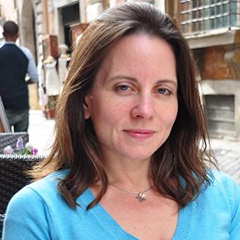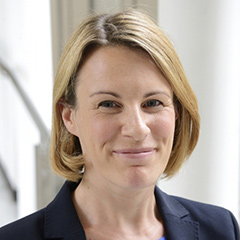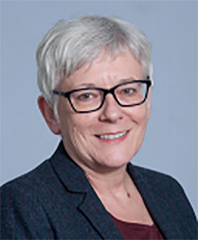Genomic Practice for Genetic Counsellors
28–30 January 2019
Wellcome Genome Campus, UK
The fundamental aspects of genomics and bioinformatics that underpin clinical practice
Summary
We are pleased to announce the fifth in our series of courses for genetic counsellors. This course aims to meet the training needs of genetic counsellors as they upskill in response to the introduction of genomic sequencing in the clinic.
The programme will provide an introduction to the fundamental aspects of genomics and bioinformatics that underpin clinical practice. It will focus on the use of sequencing in relation to diagnostics and has been designed specifically by genetic counsellors for genetic counsellors. There will be a particular focus on learning how to do variant interpretation. For example, workshops will focus on the use of the DECIPHER database, and the identification of variants in cancer and eye disorders.
Attendees will have the opportunity to work with sequence data and explore how it is created, analysed and delivered. The programme begins with a refresher session on molecular genetics, which will offer an overview of all the terminology that will be built upon in the course.
The course is suitable for genetic counsellors practising in the UK or internationally. We also welcome applications from nurses delivering genetic healthcare. The course has been designed so that it is relevant for use by genetic counsellors in their GCRB registration. To optimize discussions and interactions, numbers are limited; therefore, early application is advised.
Please note that we may need to limit the number of places allocated to each centre/institute to increase diversity on the course.
Learning outcomes
Following attendance of this course, participants will be able to:
- Describe genomic terms including: reference sequence, EXAC, synonymous, transcript, haploinsufficiency.
- Explain and discuss the basic principles of how genomic sequencing is done.
- Anticipate issues that might arise around informed consent for an exploratory sequence.
- Make judgments about appropriateness of single gene, targeted panel or whole sequence analysis, based upon clinical questions.
- Assess and critique the use of a variety of visualization tools and databases such as DECIPHER.
- Contribute effectively to discussions on variant interpretation during multidisciplinary team meetings.
- Describe and critically evaluate the current role of genomics in healthcare.
Programme
The course will start at 11.00 on Monday 28 January and close at approximately 15.30 on Wednesday 30 January 2019.
The following topics will be covered:
- Refresher on molecular genetics
- The role of genomics in healthcare
- Sequencing and bioinformatics – what does the genetic counsellor need to know?
- Choosing what to test for and taking consent
- Sequencing and analysis
- Variant interpretation
- Visualising and reporting genomic data
This is a residential course. All participants are requested to stay onsite for the full duration to benefit fully from discussions and interactions with the faculty and other students.
Instructors and speakers

Georgie Hall
St Mary’s Hospital Manchester, UK

Marion McAllister
Cardiff University, UK

Anna Middleton
Wellcome Genome Campus, UK

Christine Patch
King’s College London/Genomics England, UK
Tutors
Gemma Chandratillake – University of Cambridge, UK
Helen Firth – Cambridge University Hospitals, UK
Julia Foreman – Wellcome Sanger Institute, UK
Heather Pierce – Cambridge University Hospitals, UK
Simon Ramsden – Central Manchester University Hospitals, UK
Andrew Read – University of Manchester, UK
Steve Scott – Wellcome Genome Campus, UK
Advanced Courses and Scientific Conferences team
Sarah Offord – Course Organiser
Treasa Creavin – Scientific Programme Manager
How to apply
| Cost | Accommodation |
|
| *Course fee | £239 | Twin accommodation |
| £304 | Single accommodation |
The fees include accommodation, meals and lectures for the duration of the course. The fee will be requested once acceptance is confirmed.
Accommodation
Residents will stay at The Wellcome Genome Campus Conference Centre, Hinxton, Cambridge, for the nights of 28 and 29 January 2019. If you wish to book onsite accommodation either side of the course dates, please contact the Conference Centre directly.
Application deadline: 20 November 2018
Places on this course are limited and will be awarded on merit. Applicants will be required to complete a short online application.
Travel visas
Please contact the event organiser if you require a letter to support a travel visa application. Note that letters will be provided to confirmed attendees.
Non-European Economic Area or Swiss nationals may be required to have a visa to enter the UK. Early application is strongly advised, as this process can take 6-8 weeks or longer.
Please visit the following websites for further information:
- UK Border Agency website: www.ukba.homeoffice.gov.uk/visas-immigration/
- Information for general visitors and business visitors: www.ukba.homeoffice.gov.uk/visas-immigration/visiting/business/business-activities/
Cost
A limited number of registration bursaries are available to attend this course (up to 50% of the standard fee).
The following documents will need to be provided:
- CV
- Covering letter
- Letter from supervisor stating financial need
To apply, please contact the event organiser.
Bursary deadline: 20 November 2018
Additional funding opportunities: Visit our Funding webpage for additional funding opportunities currently available
Testimonials
Feedback from previous course participants:
“It was great to have a course tailored specifically to GC practice. It was very beneficial to gain insight into the experiences of GCs across the UK and overseas in relation to genomic counselling and it was hugely positive to see the central role GCs are playing in genomic practice and in progression of the GC profession.”
“This is one of the best courses I have been on recently and the standard of lectures was exceptional. I highly recommend it.”
“The practical workshop, especially the workshop on variant interpretation in eye disorders was really useful.”
“It was perfectly pitched at the right level for experienced genetic counsellors. It has given me more insight into variant interpretation.”
“I learnt practical tips and information that I could use in my clinical practice.”

